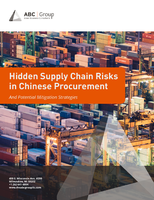ANSI is seeking comments for potential ISO activity on clean cookstoves.
Press Release Summary:
Partnership for Clean Indoor Air (PCIA) and Global Alliance for Clean Cookstoves (the Alliance) have approached ANSI for recommendations on advancing international standards for clean cookstoves with aim of promoting clean and efficient home cooking technologies in developing countries. As U.S. member body to ISO, ANSI invites interested stakeholders to submit comments on potential ISO activity related to cookstoves by September 2, 2011.
Original Press Release:
ANSI Seeks Comments on Potential New ISO Activity on Clean Cookstoves
The Partnership for Clean Indoor Air (PCIA) and the Global Alliance for Clean Cookstoves (the Alliance) - two international organizations working to improve health, livelihood, and quality of life by reducing exposure to indoor air pollution from rudimentary cookstoves and open fires - have approached the American National Standards Institute (ANSI) for recommendations on advancing international standards for clean cookstoves for use in promoting clean and efficient home cooking technologies in developing countries. As the U.S. member body to ISO, ANSI invites all interested stakeholders to submit comments on a potential ISO activity related to cookstoves by Friday, September 2, 2011.
According to PCIA and the Alliance, nearly half of the world population - three billion people in the developing world - cook food by burning coal and biomass, including wood, dung, and crop residues over open fires or rudimentary, often unvented stoves. Indoor burning of solid fuels releases dangerous particulate matter, carbon monoxide, and other toxic pollutants; leads to indoor air pollution levels that are 20 to 100 times greater than the World Health Organization's (WHO) air quality guidelines; and releases greenhouse gases and black carbon into the air. The WHO estimates that 1.9 million people, primarily women and children, die prematurely each year from exposure to indoor smoke from these cooking practices. Open fires and rudimentary cookstoves also increase pressures on local environmental resources (e.g. forests, habitat) and contribute to climate change at the regional and global levels.
PCIA and the Alliance are working with more than 465 partners in 115 countries to have 100 million homes adopt clean and efficient stoves and fuels by 2020. Developing globally recognized standards that are widely accepted by the stove community and adopted by country governments could spur wider deployment of clean cookstoves. One possible means for advancing efforts at developing globally recognized consensus standards is to build upon the work that has already been done through an International Workshop Agreement (IWA), which may be proposed to ISO by PCIA and the Alliance.
All comments on the potential activity should be sent to Steven P. Cornish, ANSI senior director for international policy (isot@ansi.org). Feedback received will be presented to the ANSI ISO Council (AIC) and taken into consideration in discussions with the Alliance regarding a future IWA proposal.




